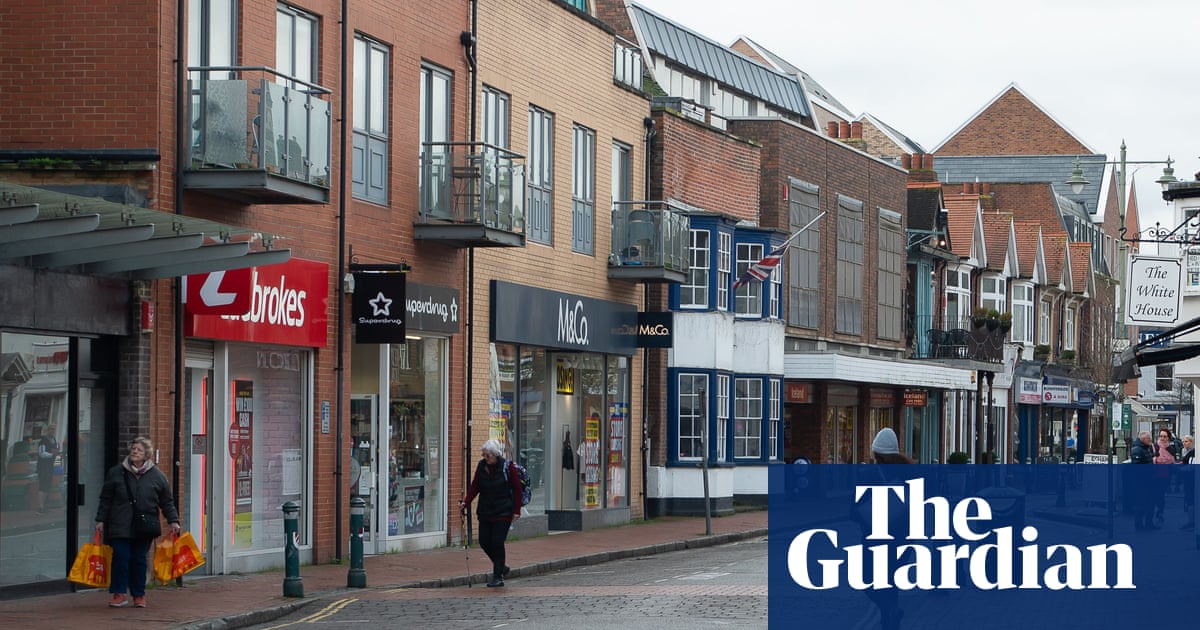
Britain’s biggest retailers have warned that soaring living costs will hit consumer spending after a mixed start to the year amid concerns about the Omicron variant.
The British Retail Consortium, which represents more than 5,000 businesses across the country, said soaring household energy prices would mean consumers tightening their purse strings over the coming months, with a knock-on effect on high streets.
It said retailers had enjoyed a strong start to the year as the absence of a January lockdown helped to keep the tills ringing during the first month of 2022, despite a drop in spending on food and drink.
Advertisement
Helen Dickinson, the chief executive of the BRC, said retailers and consumers faced challenges in the coming months.
“Rising inflation, driven by higher costs of production, higher energy and transport prices, as well as other looming price hikes this spring will mean consumers will have to tighten their purse strings,” she said.
According to the latest industry sales snapshot, families prioritised home purchases in January with growth in spending on household appliances, electronics, homeware and furniture. On a total basis, retail sales increased by 11.9% compared with January 2021 and by 7.5% compared with the same month in 2020 before the coronavirus pandemic.
It said there was strong sales growth for footwear, furniture and jewellery, while spending on food and drink, toys and computing all fell in the first month of the year.
Separate figures from Barclaycard showed consumer spending growth slowed in January as the government’s plan B restrictions in England and concerns over high rates of coronavirus discouraged people from heading to shops, pubs and restaurants.
Barclaycard, which processes almost half of UK credit and debit card transactions, said spending rose by 7.4% in January compared with the same month in 2020 – the smallest uplift since April 2021 – as office-based workers stayed at home and hospitality sales slumped. Unlike the BRC, which compiles its figures by surveying retailers, the bank’s data is taken from card spending across retail, hospitality and leisure.
Spending on specialist food and drink increased by 67.3% compared with the same month in 2020 as Britons shopped locally due to work-from-home guidance and restarted meal box subscriptions after Christmas. However, hospitality and leisure spending dropped 6.3% compared with the same month two years ago despite sales remaining stable among younger age groups – a possible sign of less concern over Covid-19.
Reflecting growing concerns about Britain’s cost of living crisis, a survey of 2,000 adults on behalf of the card provider showed almost nine out of 10 consumers were worried about the impact of rising inflation on their finances. Three in 10 said they expected rising energy bills to affect the amount they spend on discretionary items.
Official figures show inflation reached 5.4% in December, the highest rate in 30 years, while the Bank of England has forecast the measure for the rising cost of living could peak at 7.25% in April. It comes after Ofgem, the energy regulator, announced its cap on household gas and electricity bills would rise by 54% from April to reflect surging wholesale market costs.
Advertisement
The government has announced a package of repayable discounts and support for poor households to cushion the blow, although charities have warned the measures are badly targeted and unlikely to prevent a sharp rise in fuel poverty for millions.
Paul Martin, the UK head of retail at KPMG, which works with the BRC to compile its monthly retail snapshot, said the stronger performance for retailers in January should be put in the context of last year’s lockdown restrictions. Although retailers would be hoping for robust levels of consumer confidence after the government moved back to plan A Covid restrictions in late January, he said there were headwinds facing firms.
“We could see a challenging few months ahead if wider macroeconomic conditions start to squeeze household incomes to the point that they start cutting back on retail spending,” he said. “We could easily see the health of the sector start to deteriorate if consumers choose to sit on savings to weather the storm.”












